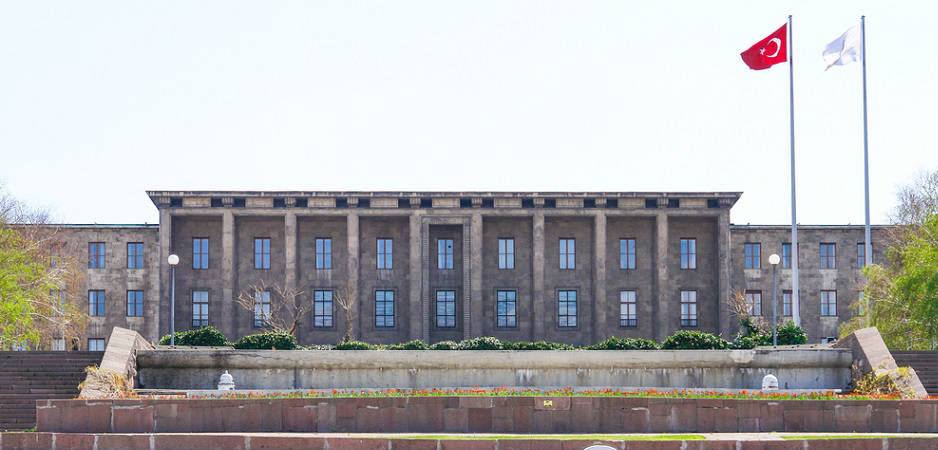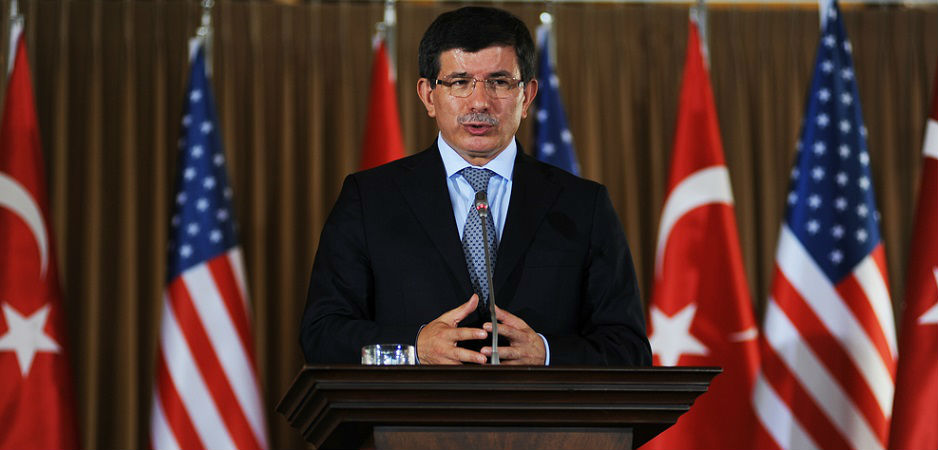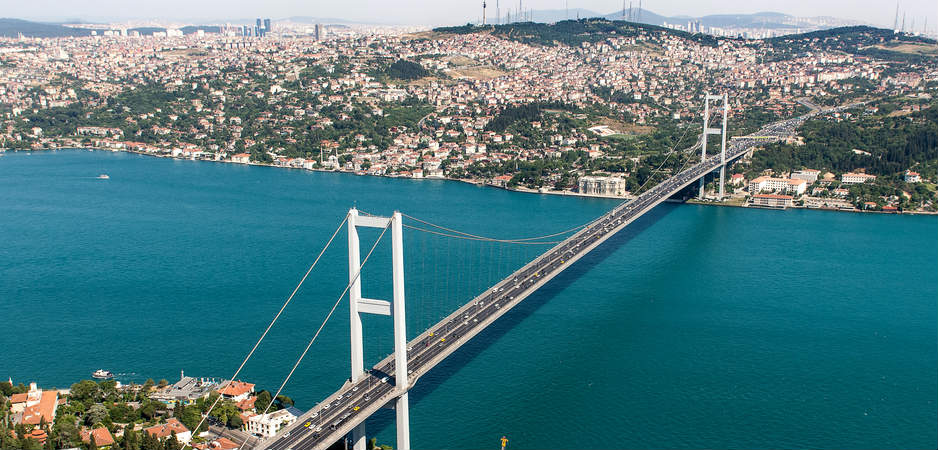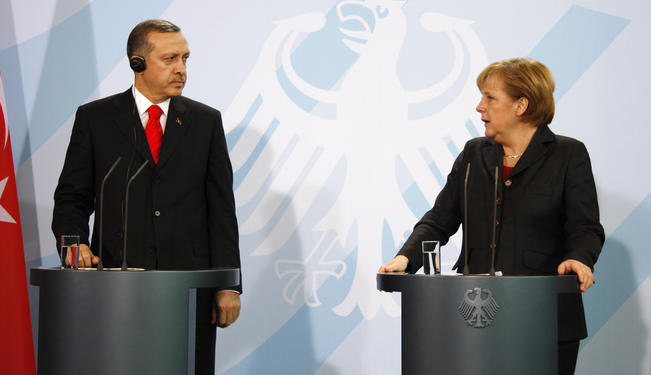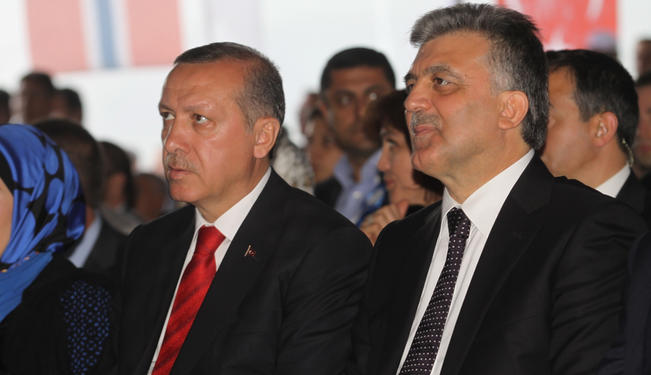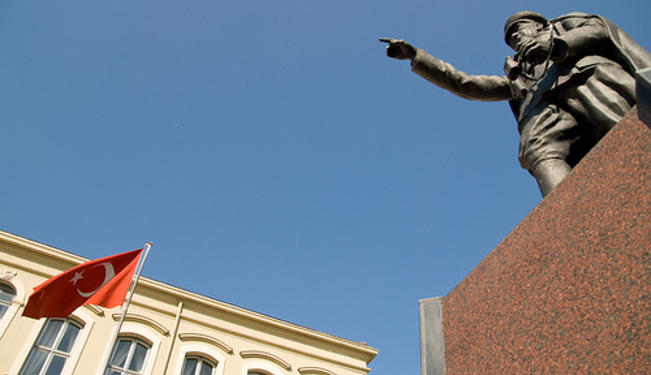The Turkish presidential election will be Erdogan’s finest hour and reveal the dearth of an alternative vision.
The Turkish presidential election of August 10 is the second of a three-part political drama unfolding in Turkey in a little over a year. The opening salvo was the March 2014 local government elections, which were portrayed as a key indicator of the country’s mood in the aftermath of the 2013 Gezi Park protests, and the corruption scandal and political battle between the ruling Justice and Development Party (AKP) and Fethullah Gülen’s Islamist movement. The third act will be the general election of June 2015.
Despite heated talk of Prime Minister Recep Tayyip Erdogan’s loss of popularity, particularly in Western media, the AKP once again gave a strong showing with 38.3% of the vote in March, almost identical to the 2009 results. What is more, it did not lose the pivotal urban centers of Istanbul and Ankara, highlighted as key battlegrounds with the opposition following the Gezi Park unrest.
As this author’s preview article of Turkish politics for 2014 predicted, the vote revealed the enduring appeal of the AKP, and Erdogan in particular. The strength of the AKP vote and its renewed command of the political center have fed into the way in which the presidential election is being fought by all sides, from the nomination of Erdogan himself to the choice of candidate made by the opposition.
Ekmeleddin Ihsanoglu: The Middle Man
Nothing in the forthcoming presidential vote is more telling or more centrally important than the candidature of Ekmeleddin Ihsanoglu. It speaks volumes about the crisis of direction among secular nationalists who have traditionally controlled the Turkish state. Ihsanoglu, a former head of the Organization of Islamic Cooperation (OIC), is a moderately conservative Islamic scholar — hardly the kind of man who will appeal to the secular nationalist voter base of either the Republican People’s Party (CHP) or the Nationalist Action Party (MHP), for whom he is standing as a joint candidate.
This presidential vote is very much Erdogan’s creation, and it is part of its self-fulfilling narrative that he should now come through to take his crown. It is the first time the Turkish public will be able to directly elect their new president; all previous ones since Mustafa Kemal Atatürk were chosen by parliament.
After 12 years of the AKP government, this is the latest move of an opposition that is failing to grasp the true direction of Turkish politics. The CHP’s attempt to hijack the Gezi Park protest movement to its own ends smacked of a party prepared to step outside the ballot box, as its connections with the military and judicial elite have so often caused it to do.
The reaction of Prime Minister Erdogan was not diplomatic. He is a populist and his cult — among followers and detractors — rests on his charismatic personal mission. This can be seen in the way he has once again seized the Palestinian cause in the run-up to this vote. His strongly partisan stance makes the secular CHP inherently uncomfortable, emphasizing Erdogan’s role as a protector of Palestinian rights — hugely significant for Muslim voters in Turkey.
The unseemly clash between the AKP and the Gülen movement that erupted into the public spotlight in December 2013 revealed fault lines in the Islamist political landscape. However, the secular nationalist opposition, particularly the CHP, failed to gain any political capital from this as the AKP voter base — largely provincial or recently urbanized populations with a conservative Islamic perspective — does not believe they speak for their concerns and identities. Inter-Islamist squabbling would have to get a lot worse and the opposition a lot more enticing before this would automatically translate into CHP votes.
Had the AKP failed badly at the March elections, it is likely Erdogan might not be running for president at all. His populist approach has alienated opposition voters, while he has become mired in corruption scandals and ugly rivalries. There has even been speculation about his support within his own party. If Erdogan succeeds in broadening the mandate of the presidency as he suggests, this might create increased friction between his office and that of the AKP prime minister.
Despite all this, no one in the AKP will challenge him right now. Erdogan currently enjoys popular support beyond that of any other Turkish politician, and his nearest rivals are other AKP members such as the current president, Abdullah Gül, rather than opposition figures. Whether there will be a longer term price to pay for Erdogan’s bombastic approach to politics is open to question, but what is more clear-cut is his stranglehold on this presidential election.
Erdogan’s Hour
This presidential vote is very much Erdogan’s creation, and it is part of its self-fulfilling narrative that he should now come through to take his crown. It is the first time the Turkish public will be able to directly elect their new president; all previous ones since Mustafa Kemal Atatürk were chosen by parliament. The democratic message it conveys, and Erdogan’s obvious faith in the people’s will, are hugely telling for Turkey.
Had the AKP failed badly at the March elections, it is likely Erdogan might not be running for president at all. His populist approach has alienated opposition voters, while he has become mired in corruption scandals and ugly rivalries. There has even been speculation about his support within his own party.
This is a state that has struggled long and hard with the question of whether to truly let the people decide. Formed by military men with a clear revolutionary vision of what kind of state they wanted to build, it has essentially remained the tool of a revolutionary secular elite ever since. What has occurred in Turkey in the 21st century, though its roots run back to the democratic government of the 1950s, is the emergence of the political voice of a broader Turkish public; and that voice is one Erdogan understands and largely represents.
The candidature of Ihsanoglu can be seen as a brave one for the CHP and MHP. Indeed, the decision to work in coalition to fight the AKP candidate reveals an understanding among secular nationalists that they must unite. Ironically, Ihsanoglu is probably a very good compromise candidate, who could forge a diplomatic middle ground between Turkey’s polarized social strata. The problem is that no one believes he is the candidate either the CHP or MHP really wants. He just appears to be a man they think can challenge Erdogan.
This reveals the secular nationalist bloc as devoid of a genuine vision of how to appeal to and energize the mass of Turkish voters. The constituency that generally backs the AKP sees a coalition that appears to be trying to beat Erdogan on an Islamist ticket, but who is likely to reveal their true colors upon victory. Conversely, the traditional voter base of the CHP and MHP — generally secular nationalists, both liberal and reactionary — see a candidate with whom they do not identify.
Finding a New Path
The only other candidate in this presidential vote is Selahattin Demirtaş of the pro-Kurdish Peoples’ Democratic Party (HDP). Like all pro-Kurdish political candidates, his is the minority vote — only expected to amount to some 6-7% of the total. But as a Kurdish candidate, Demirtaş is representative of where the secular nationalists have failed.
Erdogan’s government is the first to have given any real sense of political engagement to the Kurdish minority in Turkey. Although concrete change has been slow in evolving, there have been sustained negotiations with the jailed Kurdistan Workers’ Party (PKK) leader Abdullah Öcalan. Erdogan is mindful of the fact that the achievement of a successful and inclusive new constitution and of lasting stability in Turkey will have much to do with how the incumbent government can engage with Kurdish concerns.
Both the CHP and MHP have signally failed to engage with the Kurdish issue in a constructive way, just as they have been very slow in understanding and responding to the Islamist vote in Turkey. Throughout the many decades of CHP government in the 20th century, the party espoused a policy of securitization. Although the CHP has made recent tentative steps toward an accommodation, the MHP has maintained a security-based stance to the Kurdish issue.
One of the fundamental barriers to representation and engagement for Kurds has been the extremely high 10% threshold for entry into parliament for political parties. It is just one area in which Erdogan has offered change, in order to connect with the Kurds. The AKP administration has also been the first to allow public broadcasting in the Kurdish language, and the teaching in Kurdish in public schools as an elective subject.
There is little doubt that Erdogan will become the first democratically elected president of Turkey — a personal triumph for him as well as a milestone for the country. The big question is what he will do with that opportunity. It seems highly likely that his victory will lead to AKP success in the third part of this drama — the 2015 general election. By that time, Iraqi Kurds, now closely aligned with the AKP government in Ankara, may be a big step closer to statehood. Erdogan is on a mission to reshape the modern Turkish state, and to take Turkey’s Kurds with him. He will be in a position to do so.
Two big questions remain for Turkey. The first is whether we will see increasing strains within the AKP as it enters a fourth term in office, and how the Islamist political movement in Turkey will mature with the consolidation of its power. The second is how the different strands of the secular nationalist opposition will choose to respond. Sooner or later, Turkey will need an effective, alternative message to that of the AKP, for the good of its democracy. Currently, it does not have one.
The views expressed in this article are the author’s own and do not necessarily reflect Fair Observer’s editorial policy.
For more than 10 years, Fair Observer has been free, fair and independent. No billionaire owns us, no advertisers control us. We are a reader-supported nonprofit. Unlike many other publications, we keep our content free for readers regardless of where they live or whether they can afford to pay. We have no paywalls and no ads.
In the post-truth era of fake news, echo chambers and filter bubbles, we publish a plurality of perspectives from around the world. Anyone can publish with us, but everyone goes through a rigorous editorial process. So, you get fact-checked, well-reasoned content instead of noise.
We publish 2,500+ voices from 90+ countries. We also conduct education and training programs
on subjects ranging from digital media and journalism to writing and critical thinking. This
doesn’t come cheap. Servers, editors, trainers and web developers cost
money.
Please consider supporting us on a regular basis as a recurring donor or a
sustaining member.
Support Fair Observer
We rely on your support for our independence, diversity and quality.
Will you support FO’s journalism?
We rely on your support for our independence, diversity and quality.




